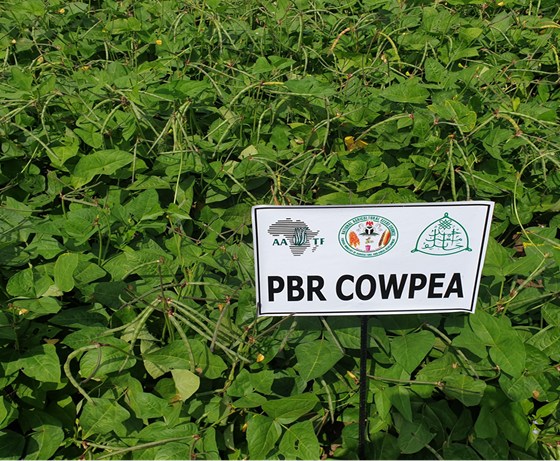
[Nairobi, September 28, 2022]: Africa needs the right policy environment to harness and optimise benefits accruing from agricultural biotechnology, innovation and emerging technologies for rural economic transformation, AATF Executive Director Dr. Canisius Kanangire, has said.
Addressing the 7th Calestous Juma Executive Dialogue (CJED) forum on Nutrition and Food Security held in Nairobi, Kenya, Dr. Kanangire said agricultural biotechnology would increase crop yields through the development of drought-tolerant and pest and disease-resistant crops that perform better and yield more.
He said biotech crops had the twin dividend of enhancing food security and mitigating the impacts of climate change in Africa. However, he pointed out that biotechnology alone was not a panacea for Africa’s agricultural productivity challenges.
“Frequent drought as a result of climate change, the emergence of new pests and diseases like the Fall Armyworm, use of harmful pesticides, and low productivity due to degraded soil nutrients, are some of the persistent challenges facing the agriculture sector in Africa,” he said.
Presenting on “the role of biotechnology in addressing food security in Africa”, Dr. Kanangire said fruitful collaborations with African governments and institutions in the last 10 years had yielded seed varieties that were more productive, and resistant to pests, disease and drought. He cited the Pod Borer Resistant Cowpea which was released in Nigeria in 2019 and is resistant to maruca vitrata, a pest that targets legumes. The Pod Borer Resistant Bt Cowpea yields six times higher than the conventional varieties, with an average harvest of two tons per hectare compared to the latter’s 0.35 tons per hectare.
The PBR Cowpea has also reduced the use of pesticides from eight times per cropping season to only two times, making the variety very cost-effective. Research for a similar product is underway in Ghana and Burkina Faso.
Dr. Kanangire said most African countries have signed and ratified the Cartagena Protocol on Biosafety for appropriate handling and utilisation of genetically modified organisms to reduce risks to humans and the environment.
He urged African leaders to invest more in research and development of emerging technologies.
“Investment in biotechnology research will produce a critical mass of expertise to enable the continent to exploit the benefits of the technology in improving agricultural productivity among farmers,” said Dr. Kanangire.
He added that most Africans are smallholder farmers, and agriculture is their best opportunity to secure a more promising future. However, millions remain impoverished because they lack consistent access to targeted, affordable agriculture innovations that would allow them to get better harvests and even surplus for sale.
The CJED, organized by the African Union Development Agency (AUDA-NEPAD), brought together experts and leaders in science and technology and relevant stakeholders to share ideas and insights on how to achieve nutrition and food security in Africa.
########
About AATF (www.aatf-africa.org)
Founded in 2003 to address Africa’s food security prospects through agricultural technology, AATF believes that the agricultural sector is a key foundational pillar as Africa consolidates its economic growth and carves out its new position as a major global economic powerhouse and the next growth market in the world. It was formed in response to the need for an effective mechanism that would facilitate and support negotiation for technology access and delivery and the formation of appropriate partnerships to manage the development & deployment of innovative technologies for use by smallholder farmers in SSA:
For more information contact:
George Achia, Communications Officer, East and Southern Africa, AATF; G.achia@aatf-africa.org ; +254 785 334163


































































